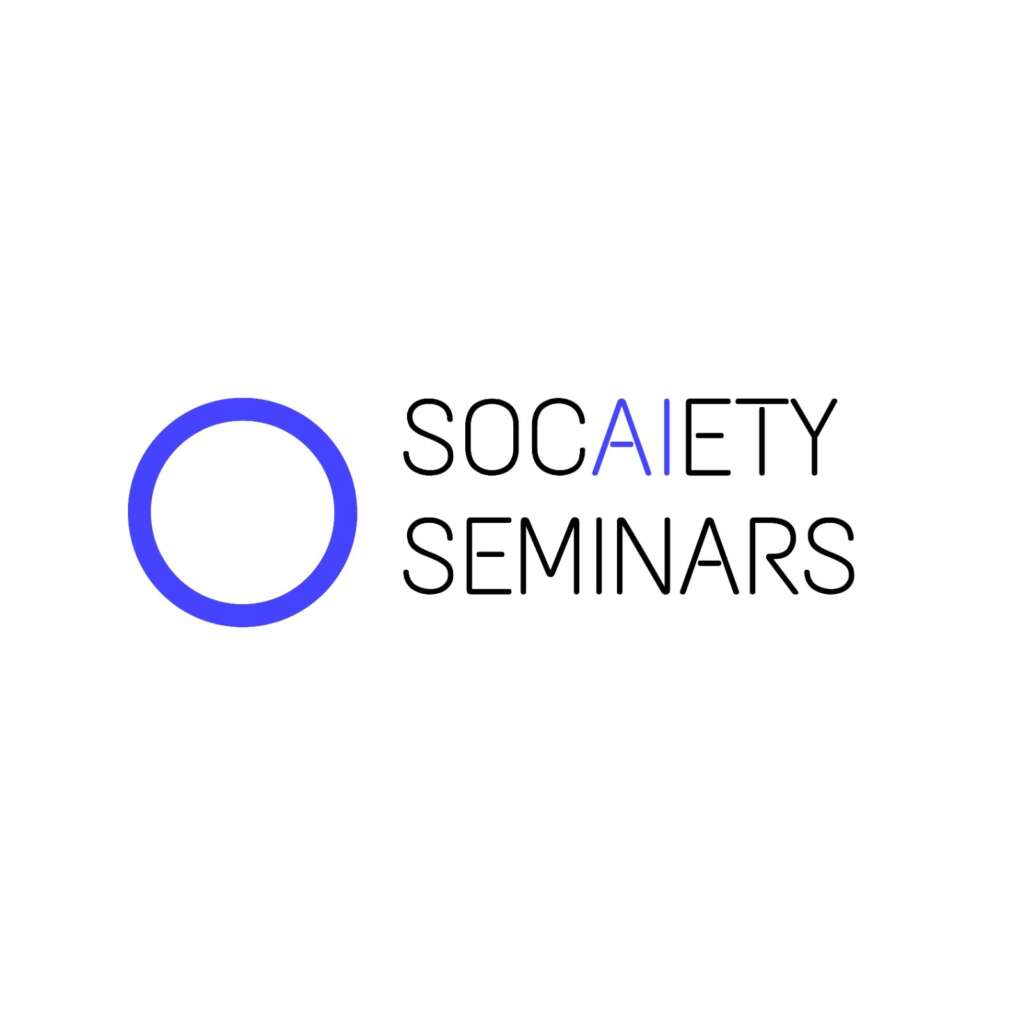
The Soc(AI)ety Seminars Series is back!
The Soc(AI)ety Seminars, hosted by the Lucy Family Institute for Data & Society, are a collection of talks with a vision for AI’s present and future impact on society, and inspire a dialogue on ethical and socially responsible Data & AI innovation.
Notable speakers invited to participate in the Soc(AI)ety Seminars have included Father Paolo Benanti, Italian presbyter, theologian and academic of the Third Order Regular of St. Francis and the award-winning AI journalist, Karen Hao.
*To ensure that we have ample refreshments, RSVP is highly encouraged for each event!
Recordings of past sessions are available on the Lucy Family Institute Youtube channel.
Cohort 2025-2026
“Individual and Collective Human Agency in the Face of ‘AI’“

Guest Speaker: Kush R. Varshney
February 25, 2026
Room 101, Jordan Hall of Science | 3:30pm
RSVP
Kush R. Varshney is an IBM Fellow based at the T. J. Watson Research Center where he is responsible for innovations in AI governance and leads research on trustworthy and purposeful AI.
Cohort 2024-2025
“Can LLMs Reason and Plan?”
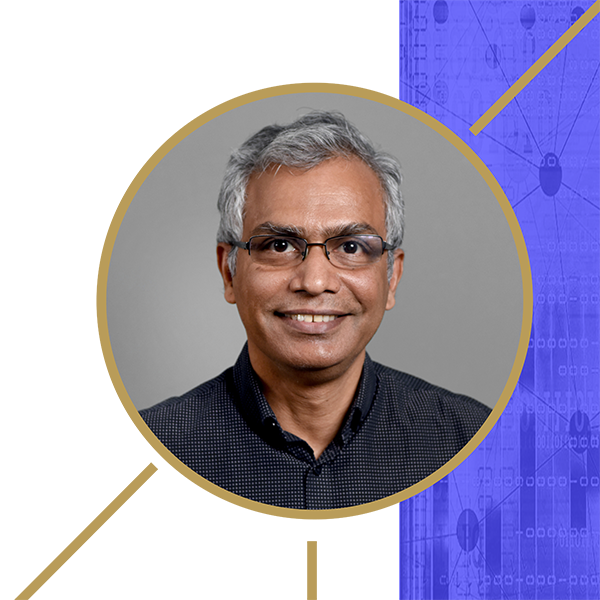
Guest Speaker: Subbarao Kambhampati
October 30, 2024
Room 101, Jordan Hall of Science | 3:30pm
Video Recording
Subbarao Kambhampati is a professor of computer science at Arizona State University. Kambhampati studies fundamental problems in planning and decision making, motivated in particular by the challenges of human-aware AI systems. He is a fellow of Association for the Advancement of Artificial Intelligence, American Association for the Advancement of Science, and Association for Computing machinery.
“AI for molecular design and synthesis, with implications for accelerated discovery & dual use”
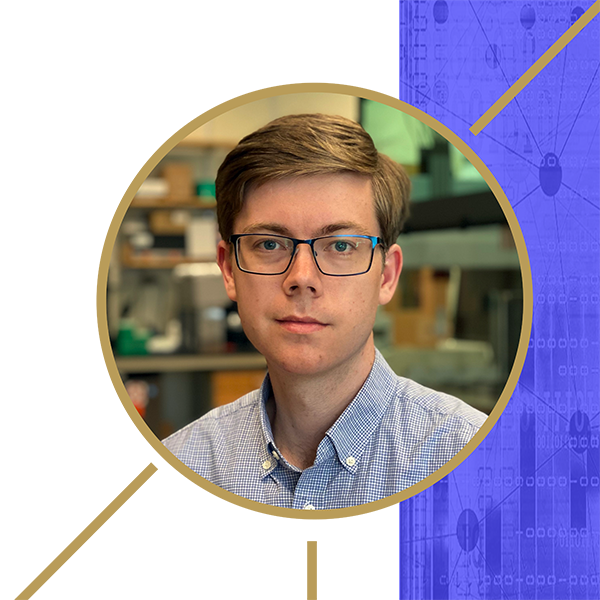
Guest Speaker: Connor Coley
November 20, 2024
Room 101, Jordan Hall of Science | 3:30pm
RSVP Here
Connor W. Coley is the Class of 1957 Career Development Professor and an Associate Professor at MIT in the Department of Chemical Engineering and the Department of Electrical Engineering and Computer Science. He received his B.S. and Ph.D. in Chemical Engineering from Caltech and MIT, respectively, and did his postdoctoral training at the Broad Institute. His research group at MIT works at the interface of chemistry and data science to develop models that understand how molecules behave, interact, and react and use that knowledge to engineer new ones, with an emphasis on therapeutic discovery.
“The Truth of the Matter in the Age of Generative AI”
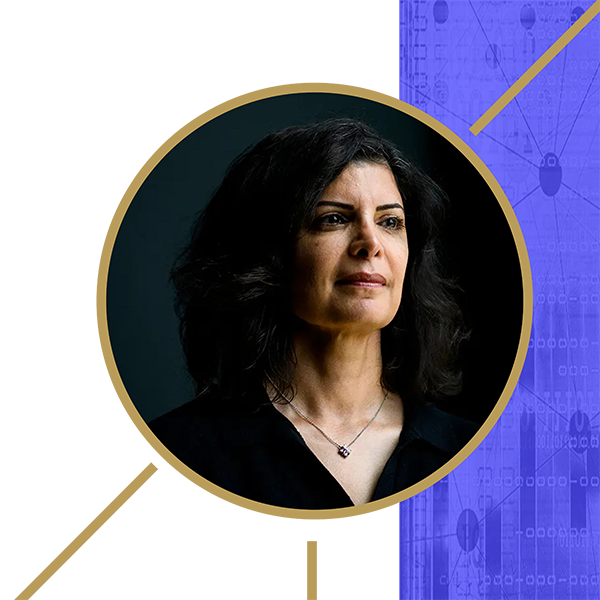
Guest Speaker: Tina Eliassi-Rad
September 10, 2025
Room 155, Debartolo Hall | 3:30pm
Tina Eliassi-Rad is the Inaugural Joseph E. Aoun Professor at Northeastern University, where she is also a core faculty member of the Network Science Institute.
Cohort 2023-2024
The inaugural 2023 – 2024 edition of the Soc(AI)ety Seminar Series focused on Responsible AI and AI Governance.
Karen Hao, “AI and the very old world order”
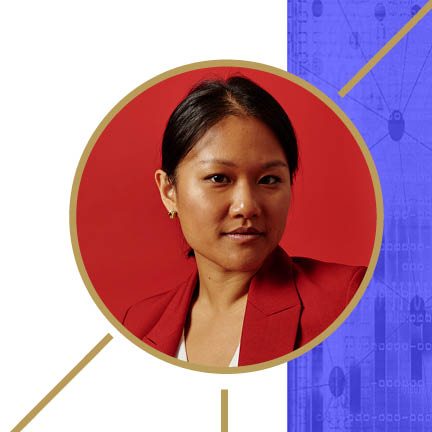
September 20, 2023
Jordan Auditorium Room 105 | 2:30pm
Video Recording
Karen Hao is an award-winning journalist covering the impacts of artificial intelligence on society and a contributing writer at The Atlantic. She was formerly a foreign correspondent covering China tech for the Wall Street Journal and a senior editor for AI at MIT Technology Review. Her work is regularly taught in universities and cited by governments. She has received numerous accolades for her coverage, including an ASME Next Award for Journalists Under 30. She received her B.S. from MIT.
Milind Tambe, “Integrating ML+Optimization: Driving Social Impact in public health and conservation”
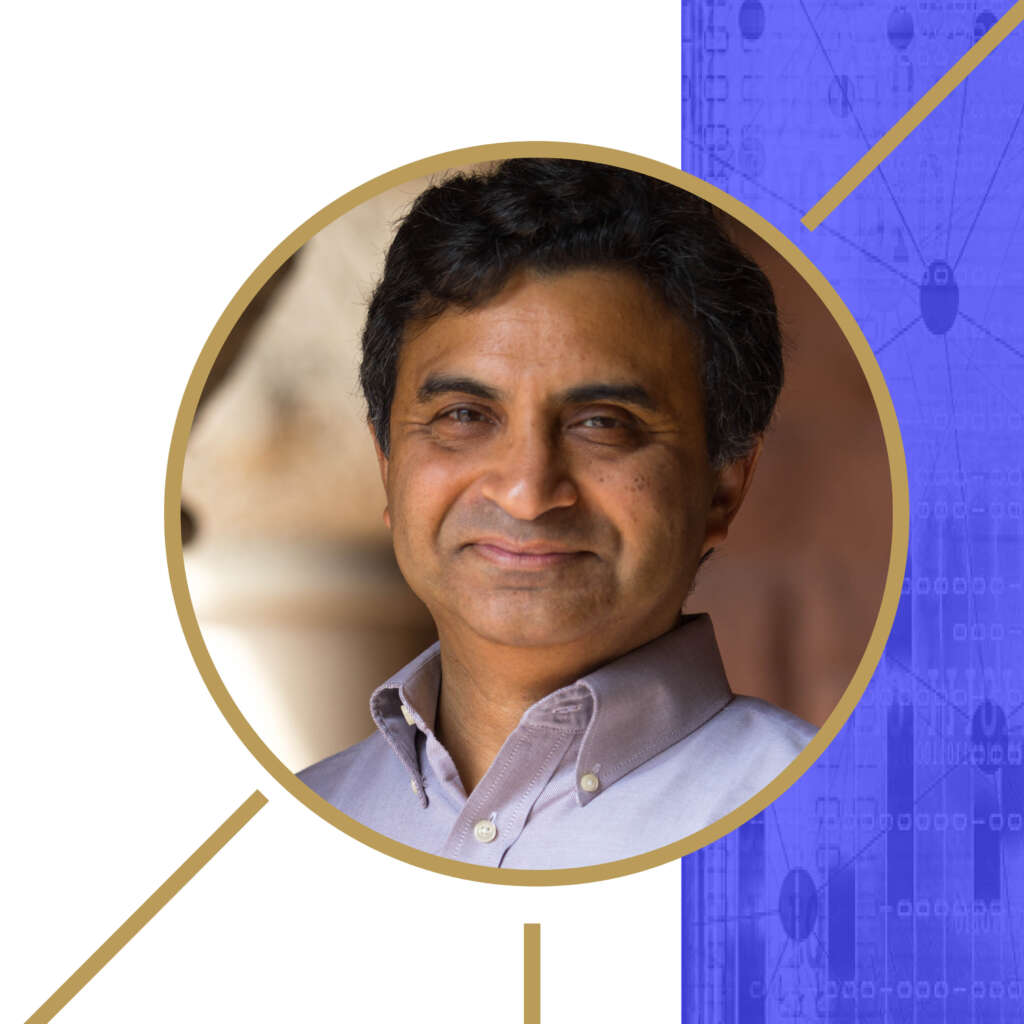
November 9, 2023
Jordan Auditorium Room 105 | 3:30pm
Video Recording
Milind Tambe is Gordon McKay Professor of Computer Science and Director of Center for Research in Computation and Society at Harvard University; concurrently, he is also Principal Scientist and Director for “AI for Social Good” at Google Research. He is recipient of the IJCAI (International Joint Conference on AI) John McCarthy Award, AAAI (Association for Advancement of AI) Feigenbaum Prize, AAAI Robert S. Engelmore Memorial Lecture Award, AAMAS ACM (Association for Computing Machinery) Autonomous Agents Research Award, INFORMS ( Institute for Operations Research and the Management Sciences) Wagner prize for excellence in Operations Research practice and MORS (Military Operations Research Society) Rist Prize. He is a fellow of AAAI and ACM. For his work on AI and public safety, he has received Columbus Fellowship Foundation Homeland security award and commendations and certificates of appreciation from the US Coast Guard, the Federal Air Marshals Service and airport police at the city of Los Angeles.
Moshe Vardi, “Technology and Democracy”
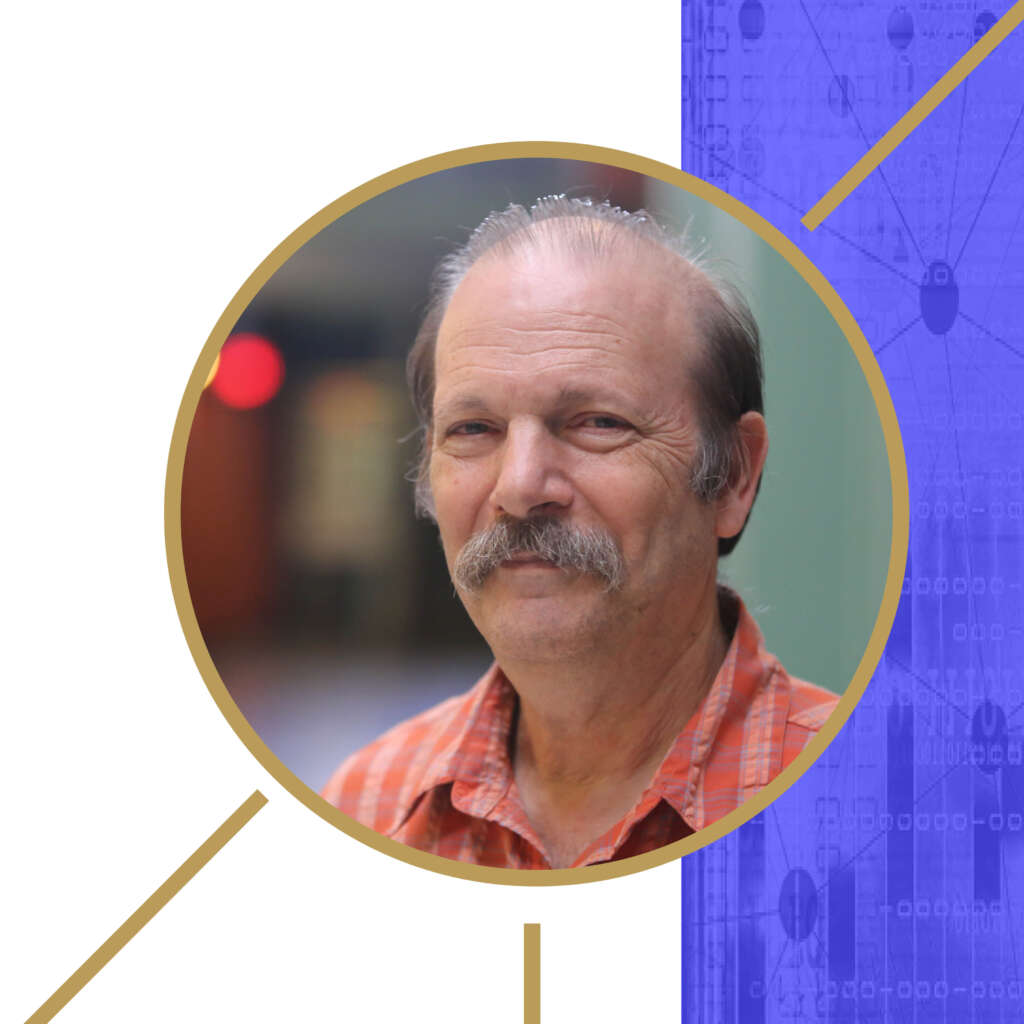
January 24, 2024
Jordan Hall Auditorium Rm 105 | 3:30pm
Video Recording
Moshe Vardi is University Professor and the George Distinguished Service Professor in Computational Engineering at Rice University. His research focuses on the interface of mathematical logic and computation — including database theory, hardware/software design and verification, multi-agent systems, and constraint satisfaction. He is the recipient of numerous awards, including the ACM SIGACT Goedel Prize, the ACM Kanellakis Award, the ACM SIGMOD Codd Award, the Knuth Prize, the IEEE Computer Society Goode Award, and the EATCS Distinguished Achievements Award. He is the author and co-author of over 750 papers, as well as two books. He is a Guggenheim Fellows as well as fellow of several societies, and a member of several academies, including the US National Academy of Engineering, National Academy of Science, and the Royal Society of London. He holds nine honorary titles. He is a Senior Editor of the Communications of the ACM, the premier publication in computing.
Paolo Benanti, “Algorethics: potentiality and challenges in the age of AI”
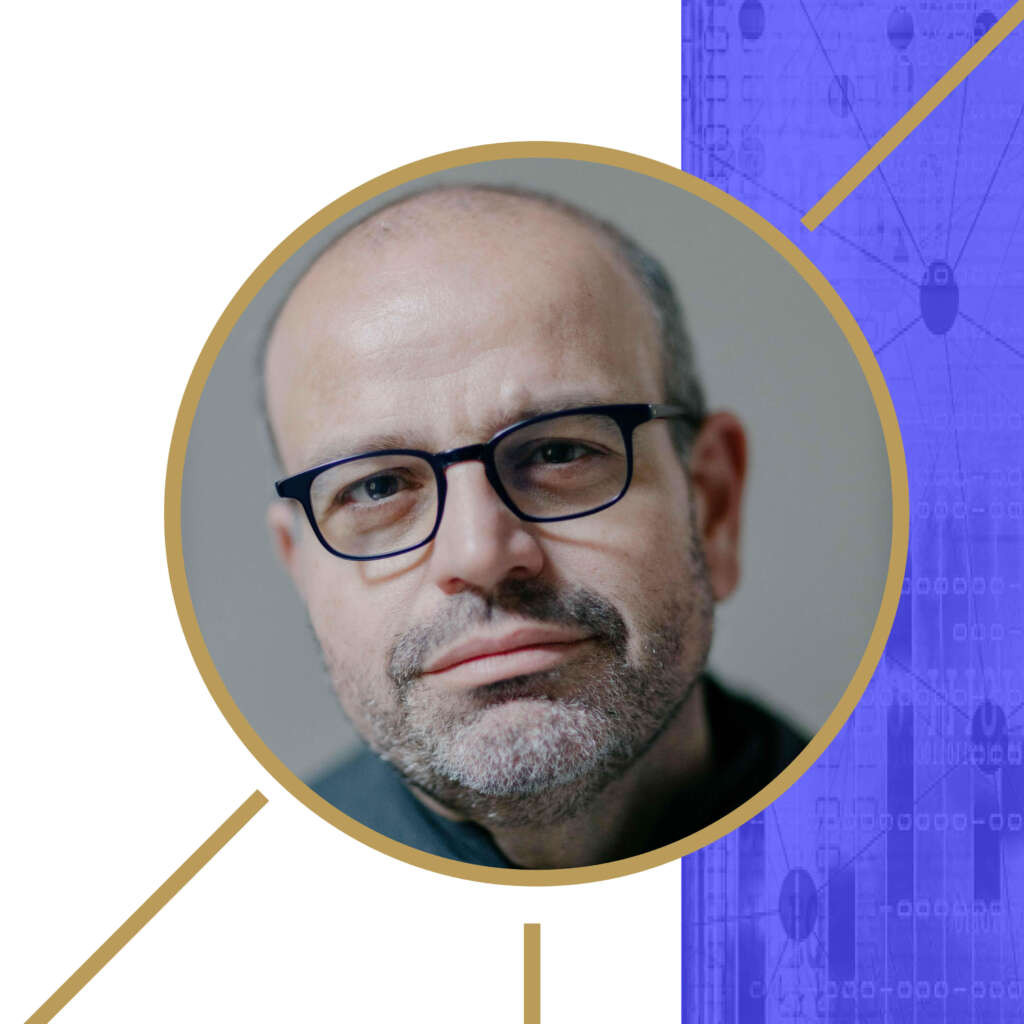
February 7, 2024
Jordan Hall Auditorium Rm 105 | 3:30pm
Video Recording
Paolo Benanti is an Italian presbyter, theologian and academic of the Third Order Regular of St. Francis. He teaches at the Pontifical Gregorian University and is advisor to Pope Francis on issues of artificial intelligence and technology ethics. Since 2008 he has worked as a professor at the Pontifical Gregorian University, the Theological Institute of Assisi and at the Pontifical College Leoni d’Anagni. His courses have included neuroethics, technology ethics, artificial intelligence and posthuman intelligence. In 2021, he was appointed by Pope Francis as an ordinary member of the Pontifical Academy for Life.
Kay Firth-Butterfield, “A Brave New World of AI Governance”

April 30, 2024
131 DeBartolo Hall | 3:30pm
Video Recording
Kay Firth-Butterfield is the Executive Director for the Centre for Trustworthy Technology. She is one of the foremost experts in the world on governance of artificial intelligence (AI) and has served as former head of Artificial Intelligence and a Member of the Executive Committee at the World Economic Forum. As a former judge, professor, technologist, and entrepreneur, she has an abiding interest in how humanity can equitably benefit from new technologies. She has served as Associate Barrister for Doughty Street Chambers, Master of the Inner Temple, London and was appointed to the Lord Chief Justice’s Advisory Panel on AI and Law. She co-founded the Responsible AI Institute and was the world’s first Chief AI Ethics officer in 2014. While Vice-Chair of The IEEE Global Initiative for Ethical Considerations in Artificial Intelligence and Autonomous Systems, she was part of the group that met at Asilomar to create the Asilomar AI Ethical Principles. She has also contributed to the Polaris Council for the Government Accountability Office (USA), the Advisory Board for UNESCO International Research Centre on AI, EarthSpecies.org and AI4All. She holds advanced degrees in law and international relations and regularly speaks to international audiences addressing many aspects of the beneficial and challenging technical, economic and social changes arising from the use of AI.